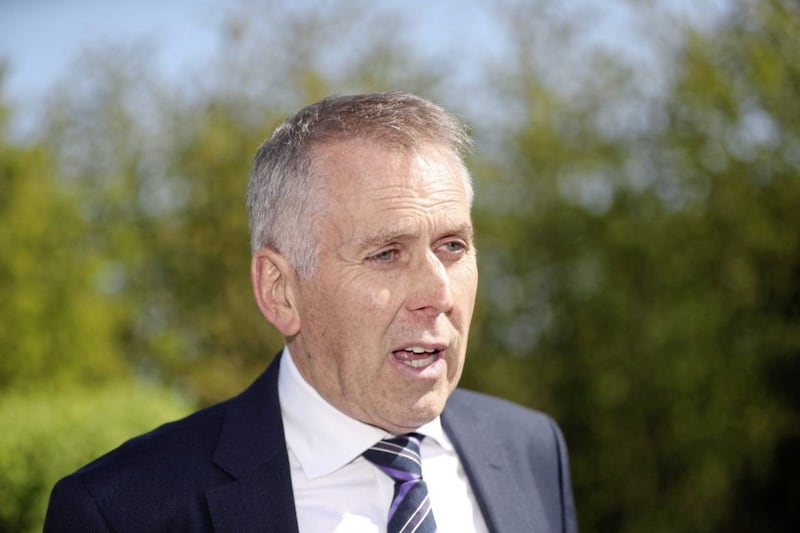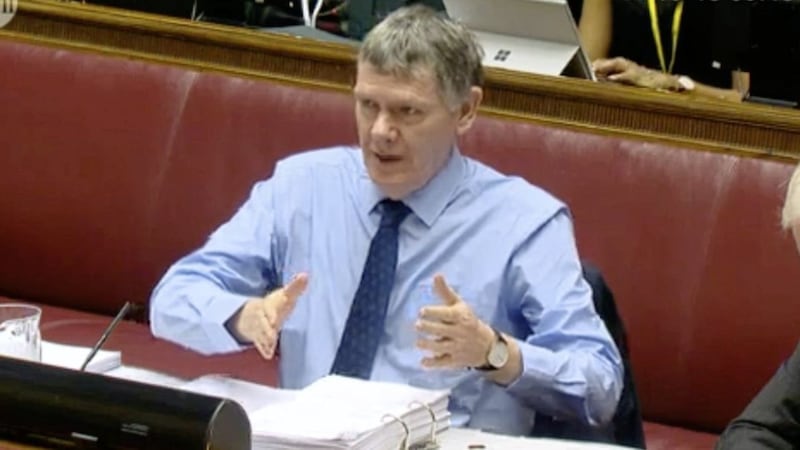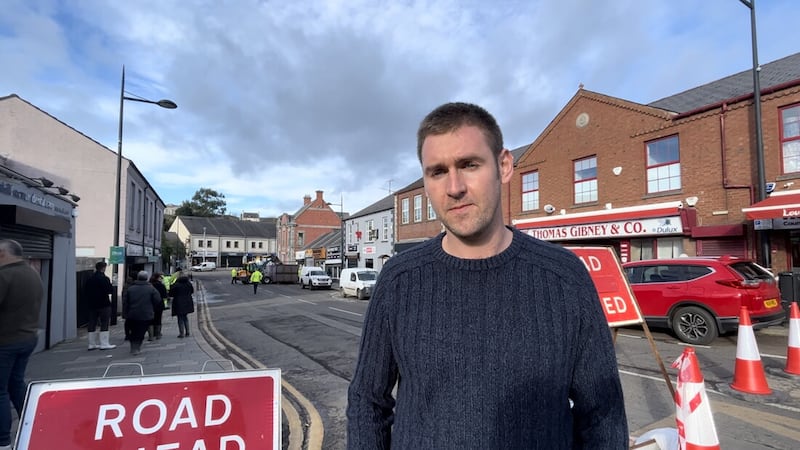STORMONT fell into a "culture of very limited record keeping" because political parties were afraid of leaks, a senior civil servant has told the RHI inquiry.
Andrew McCormick said the attitude that developed within Stormont was that "if you write something down it'll probably appear in the newspapers".
He said it was a particular issue in the devolved administration because the "tensions are multidimensional in the nature of enforced coalition".
Mr McCormick told how "tweeting from the executive room" was commonplace despite it being intended as a confidential space for government business.
Inquiry chair Sir Patrick Coghlin expressed surprise, saying that Stormont rules were being "completely ignored".
It came as the inquiry heard there were no minutes recorded of a key meeting at which it was agreed to delay implementing cost controls for the flawed RHI scheme.
Delays in introducing cost controls brought a spike in applications – pushing the multi-million-pound government scheme hugely over budget.
As permanent secretary, Mr McCormick was the top civil servant in the Department of Enterprise, Trade and Investment (Deti) when RHI issues emerged in summer 2015 and cost controls were discussed.
Returning to the RHI inquiry, Mr McCormick said: "We should not have got into this culture of very limited record keeping – it's not a good thing."
He said the lack of formal records was happening "not only in Deti, but in other places as well".
In his written statement, Mr McCormick said: "I think that the largest single factor that led to very limited recording of reasons for decisions was the political parties' fear of leaks."
He said the "reality is that almost any document, however private, could be leaked".
Discussing this, he told the inquiry that smaller parties in the executive "always feel they're getting second-class access to information".
He added: "Part of the consequence of that has been a pattern of leaking, tweeting from the executive room when in theory the executive room is a space for private, confidential government business to be done."
Expressing surprise, inquiry chair Sir Patrick Coghlin asked: "Am I right in thinking that is somebody using social media to pass on information about an active debate that's taking place?
"Why wasn't there a proper disciplinary procedure in force for that? It's not the media's fault."
Mr McCormick said "there are rules" but the "very careful set of checks and balances within the Good Friday Agreement mean that achieving censure against someone who offends is actually quite difficult".
"Excluding a minister for breach of the ministerial code – it happened time and again – but actually to enforce the rules is politically very difficult," he said.
He said the agreement and ministerial code "say all the right things about things that should not happen" but in reality "they're almost impossible to enforce – and therefore they're not enforced".
Sir Patrick said it would "come as something of a shock" not only to him but the vast majority of the Northern Ireland population, adding that rules were "completely ignored".
"There cannot be, from a public point of view, a positive perception of the political process if that occurs," he said.
In March, David Sterling – interim head of the Northern Ireland Civil Service – told the inquiry that meetings were not minuted in order to frustrate Freedom of Information (FOI) requests.
His comments have sparked an audit by the Information Commissioner's Office to assess the Northern Ireland Civil Service's compliance with FOI legislation.

Mr McCormick said behaviour in response to FOI "varied considerably across departments" and there was "always a sensitivity around it".
He added: "The deeper underlying point is that sometimes the reasons for decisions were things that the parties would not want to have been either vulnerable to a leak or even ultimately to disclosure in the longer term."
But inquiry panellist Dame Una O'Brien said the lack of note-taking has "very wide ramifications", meaning officials tasked with implementing decisions have no record of what has been agreed.
Launched in 2012, the non-domestic Renewable Heat Incentive (RHI) was designed to encourage businesses to switch from burning fossil fuels to more sustainable alternatives.
But the subsidies were worth more than the cost of wood pellets, encouraging firms to 'burn to earn'.
The controversy led to the collapse of devolved power-sharing government at Stormont and the set-up of an inquiry into what went wrong with the green energy scheme.
Later, Mr McCormick told the inquiry he was unaware that DUP special advisers (Spads) were being lobbied to keep the scheme open in summer 2015.
Referring to one ex-DUP Spad, Andrew Crawford, Sir Patrick said: "We now know not only was Dr Crawford lobbied, but he was an active disciple on behalf of Moy Park."
The inquiry has heard Mr Crawford, who had a number of close relatives with RHI boilers, was in touch with the poultry giant about changes to the scheme.
Mr McCormick also told the inquiry said he now believes he should have asked for a ministerial direction when Timothy Cairns, another DUP Spad, requested a delay in cost controls.
A ministerial direction is where a minister is required to approve a decision which senior officials believe does not offer value for money.
Mr McCormick said not seeking a ministerial direction was a "matter of regret".








